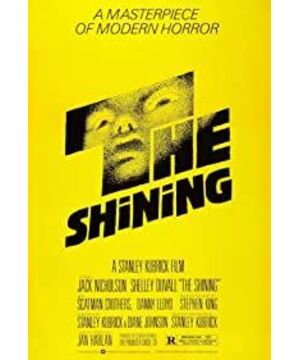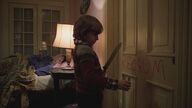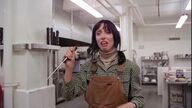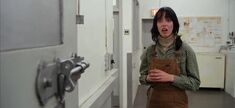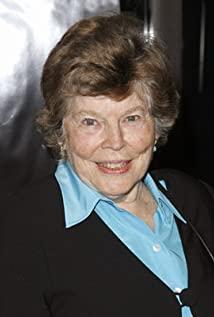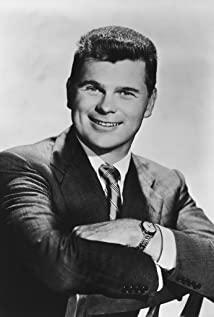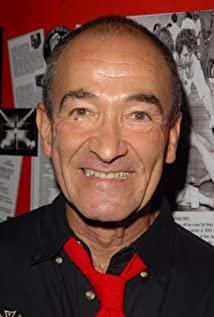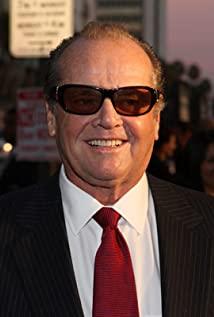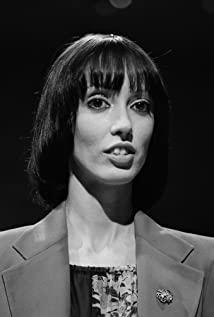It doesn't mean anything, and it's not a bogey name. I just feel that the best way to understand a movie is to understand the director's thoughts. I really appreciate sevenyears' carefulness.
This is a ghost film and does not require too much thinking.
Michel Ciment (Editor-in-Chief of Feature Films, Chairman of the International Film Critics League): In your previous movies, you seem to be more interested in the facts and issues surrounding the story-such as in "Dr. Strange Love" "In Space 2001" and "A Clockwork Orange" explore the relationship between nuclear threats, space travel, government, and violence. In "The Shining", you were first attracted by the subject of extrasensory perception (ESP), or a novel by Stephen King (Stephen King).
Kubrick: I have always had a strong interest in ESP and paranormal. Some experiments have shown that proving the existence of supernatural power is just a lack of some conclusive evidence. In addition, I can be sure that we have all experienced things like this: opening a book is exactly the page we want to read, or thinking of a friend the moment he calls. But shooting "The Shining" was not just to talk about ESP. John Calley of Warner showed me the original novel, and I think this is one of the most original and exciting works of this kind I have ever seen. It strikes a special balance between psychology and supernatural power, making you think that you can explain the supernatural world from a psychological level. "These things must be Jack's imagination, because he is a lunatic", which allows you to put aside your doubts about surrealism until you enter the story so completely that you accept it unknowingly.
Simon: Do you think this is the key to the success of the novel?
Kubrick: Yes. I think this is the brilliance of the novel. When a supernatural phenomenon occurs, you will look for the corresponding explanation. The most plausible explanation seems to be that these strange things are actually what Jack imagined. Until Grandi, the former guard who killed the whole family with an axe, his ghost opened the door of the storage room and let Jack run away. At this time, there is no other way except to explain it with the supernatural. This novel is definitely not a serious literary work, but the plot design is basically excellent, which is usually what really matters for movies.
Simon: Do you think that these very typified characters and symbolic images can only be found in this kind of popular literature, but they have basically disappeared in high-grade literary works?
Kubrick: Indeed, I think this is part of the reason why they are often so successful. There is no doubt that a good story is always important. Great writers usually create on the basis of a good plot. I have not been able to determine whether the plot is just a way to attract readers so that you can do other things, or whether the plot is really more important than other things, communicating with us subconsciously, just like the previous myth. I think in some ways, the clichés of those realistic novels and dramas severely constrain the story itself. First of all, if you stick to the rules and follow the rhythm and presentation methods required by realism, it will take you much longer than fantasy novels to express what you want to express. At the same time, your work on realism may weaken your subconscious ability to catch people. Realism may be the best way to dramatize ideas and concepts. Fantasy novels are the best way to deal with themes that occur on the subconscious level. I think the subconscious allure of ghost stories, to give an example, lies in the expectation of immortality. If you have ever been scared by ghost stories, then you must accept that supernatural things are possible. If they do exist, then what awaits us after death is more than just being forgotten.
Simon: There are similar hints in many fantasy novels.
Kubrick: I think the best fantasy stories have the same effect on us as the fairy tales and myths of the past. The popular fantasy themes, especially in movies, hint at popular culture, at least, it is impossible to find what you need from realism. The 19th century was the golden age of reality fiction, and the 20th century may be the golden age of fantasy fiction.
Simon: After "Barry Linden", did you directly work on "The Shining"?
Kubrick: After filming "Barry Linden" I spent most of my time reading. Month after month, I didn't find anything to excite me. When I think about how many books I have to read but never get the chance to read, especially at this time, I feel a sense of fear. Because of this, I began to avoid systematic reading, and replaced it with random methods, half by luck and half by planning. I think this is the only way to deal with the newspapers and magazines piled up in the room-some of the articles I was looking for may be hiding other things that interest me.
Simon: Did you do any research on ESP?
Kubrick: In fact, there is not much research to do. I don't need to study this story because I have always been interested in this topic. I think I know more than enough. I hope that ESP and other psychic phenomena related to it will eventually be able to use scientific experiments to find scientific arguments. In fact, many scientists have been attracted by the existing evidence and have spent a lot of time working hard in this field. If decisive evidence can be found, it will not be as exciting as people have discovered extraterrestrial intelligence, but it will certainly make people see it. In addition to these inexplicable psychic experiences that we more or less remember, I think we can find similar things in animal behavior. I have a long-haired cat named Boli, whose hair is always knotted and needs me to comb or shear her. It hates me doing this. Many times, when I stroked it and felt that there were many knots in her hair and wanted to take some measures, it would suddenly get under the bed before I was ready to take the scissors or comb. Of course I thought about the possibility that it could predict when I planned to use the comb in advance. For example, when I wanted to comb her hair, I would use some special movements to touch the knots, but I'm sure she didn't detect it by this. Her hair is almost always knotted, and I stroke her countless times a day, but it runs away and hides only when I want to trim it. Since I realized this possibility, whether I feel she needs to be groomed or not, I have deliberately made myself feel the same as touching her, but it can still detect the difference.
Simon: Who is Diane Johnson who wrote the script with you?
Kubrick: Diane is an American novelist. She has written many excellent novels that have received widespread attention. I became very interested in several books she wrote. After chatting with her, I was surprised to find that she actually taught gothic novels at Berkeley University. When the "The Shining" project was established, she was considered an ideal collaborator, and in fact she was indeed competent. I had started writing story scripts (treatment) before she started to participate in the creation, but I haven't started writing scripts yet. The key to writing the "The Shining" script is to extract the essence of the storyline, and to rewrite the weak links of the story, and the characters are somewhat different from those in the novel. Great novels are often ruined at this stage of compression, because their brilliance lies in the beauty of the writing, the author’s insight, and the density of the story. But "The Shining" is different, its advantages are almost all in the narrative structure, it is not difficult to adapt it into a movie script. Diane and I discussed the book carefully and drafted an outline for the passages that should appear in the film. These paragraphs were repeatedly combined and broken up until we thought it was right, and then we started to write them formally. We wrote a few drafts, and we revised them one after another before and during the shooting.
Simon: It’s strange that you emphasize this supernatural aspect, because others will say that in the film you spent a lot of pen and ink on Jack’s behavior to make obvious rational explanations: such as high altitude, claustrophobia, loneliness, lack of drinking ( lack of booze).
Kubrick: Stephen Crane wrote a story called "Blue Hotel." You can quickly learn that the core character in it is a paranoid. In a poker gambling game, he felt that someone was out of control, so he blamed the opponent, provoked a fight and was eventually killed. You will feel that what the story says is that his death is inevitable, because a gambler suffering from paranoia will inevitably be involved in a deadly gunfight in the end. However, in the end, you will find that the person he blamed did indeed commit hacking. I think "The Shining" also uses similar psychological misleading to prevent people from prematurely realizing that supernatural things are actually happening.
Simon: Why did you modify the end of the story and delete the scene that the hotel ruined?
Kubrick: To be honest, the ending of the original is a bit boring to me, and it doesn't mean much. I want an ending that the audience can't think of. In the film, the audience thinks Hallorann can come to save Wendy and Danny. When he is killed, the audience thinks: it's bad. Obviously, what the audience is worried about is that Wendy and Danny have nowhere to escape. The end of this maze may be thought of from the animal topiary passages in the novel. In fact, I don't remember where the original idea came from.
Simon: Why did the room number change from 217 in the novel to 237?
Kubrick: The film’s location is Timberline Lodge near Mount Hood, where there is only 217 and no room 237. The manager of the hotel worried that the guests would not stay in room 217 after watching the movie. In fact, what really scares us is that the hotel is built on the high slope of Mount Hood. Mount Hood happens to be a dormant volcano, but the recent earthquake-like pre-eruption on the mountain is very similar to the large-scale eruption that occurred on Mount St. Helens, 60 miles away, a few months ago. If Mount Hood came to do this, Timberline Lodge is probably burnt down like the Vision Hotel in the novel.
View more about The Shining reviews


